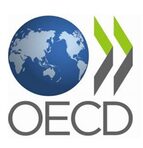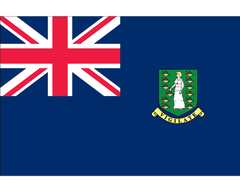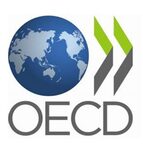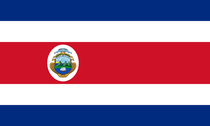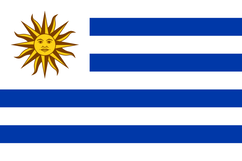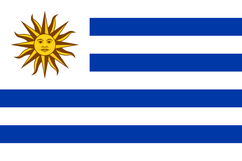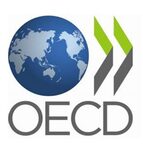|
On February 24, 2020, the OECD published the eighth round of stage 1 peer review reports on dispute resolution for a further eight jurisdictions.
The reports pertain to the following jurisdictions: Brunei Darussalam, Curaçao, Guernsey, Isle of Man, Jersey, Monaco, San Marino, and Serbia. The reports assess the efforts made by these jurisdictions to implement the minimum standard agreed under Action 14 of the base erosion and profit shifting (BEPS) project. The reports contain around 135 targeted recommendations that will be followed up in stage 2 of the peer review process. According to the OECD, some countries are already working to address deficiencies identified in their respective reports. See Reports On February 26, 2020, South Africa’s Finance Minister, Tito Mboweni, presented before Parliament the country’s 2020 Budget, which includes a proposal to restrict deduction of interest expenses.
The Budget proposes to restrict net interest expense deductions to 30% of earnings for years of assessment commencing on or after January 1, 2021. The Government has alongside launched a consultation on the design of this limitation rule and the closing date for comments is April 17, 2020. According to the Minister, the measure “will address a typical form of base erosion and profit shifting by multinational corporations. This practice involves artificially inflating company debt and/or the interest rate on that debt to a related party in another jurisdiction with a lower corporate income tax rate. The resulting interest payments are deducted in South Africa, reducing the domestic tax base and effectively shifting profits to be taxed at a lower rate offshore.” In another move, the Budget proposes to broaden the corporate income tax base by restricting the offset of assessed losses carried forward to 80% of taxable income, for years of assessment commencing on or after January 1, 2021. The Minister noted: “This is viewed as a reasonable approach that affects all businesses equally, rather than restricting the number of years for carrying forward assessed losses, which would disproportionately hurt businesses with large initial investments or long lead times to profitability.” See Budget Speech On February 12, 2020, the Latvian Government gazetted a key amendment to the country’s Corporate Income Tax Act.
Under the amendment, loans received for financing a long-term public infrastructure project of national importance in Latvia shall be exempt from the interest deductibility rules. As such, the EBITDA (30%) and debt-equity ratio (4:1) restrictions shall not apply. The amendment entered into force on February 12. See Amendment The British Virgin Islands’ (BVI) International Tax Authority (ITA) will soon be ready to receive country-by-country (CbC) reports from BVI Constituent Entities.
In a February 24 press release, the ITA reminded all Constituent Entities resident for tax purposes in the BVI that they must submit filings with the tax authority. Where more than one BVI Constituent entity is a part of the same MNE Group, each BVI Constituent Entity has an obligation to register individually with the ITA, however; it must also identify the name of the Reporting Entity and the tax residence of the reporting entity for the MNE Group that it is a part of. The ITA said that it will not receive CbC reports by email. Reporting must be done via the electronic portal, BVI Financial Account Reporting System (BVIFARS) only. The electronic system is in its final stages of updates and it is intended for these updates to be completed soon with a view to going live during the first week of March 2020, the ITA said. Constituent entities that have already registered with the ITA need not register again once the System becomes live. The registration confirmation and BVIFARs account number will be sent to the responsible person identified in the registration documents that were submitted to the ITA. On February 19, 2020, the US Government issued corrections to Treasury Decision 9885, on the base erosion and anti-abuse tax (BEAT).
Treasury Decision 9885 – issued under section 59A of the Internal Revenue Code – is designed to prevent the reduction of tax liability by certain large corporate taxpayers through certain payments made to foreign related parties and certain tax credits. According to the Government, Treasury Decision 9885 contained “errors that may prove misleading and therefore need to be corrected.” The correction is effective from February 19, 2020, and is applicable from December 6, 2019. See Corrections On February 18, 2020, Singapore’s Deputy Prime Minister and Minister for Finance, Heng Swee Keat, delivered the country’s 2020 Budget, which includes key corporate tax measures.
The Budget seeks to increase the corporate income tax rebate for the 2020 assessment year (AY) from 20 percent to 25 percent of tax payable, capped at SGD 15,000 per company (currently SGD 10,000). Further, under the enhanced carry-back relief scheme for AY 2020, qualifying deductions for AY 2020 may be carried back up to three (currently one) immediate preceding AYs, capped at SGD 100,000 of qualifying deductions and subject to conditions. Taxpayers may elect to carry back to the relevant preceding AYs an estimated amount of qualifying deductions available for AY 2020, before the actual filing of their income tax returns for AY 2020. Further details on the enhanced carry-back relief will be available by end of February 2020. See Overview of 2020 Budget On February 12, 2020, a bill to expand the definition of a significant global entity (SGE) was submitted before the Australian House of Representatives.
The Treasury Laws Amendment (2020 Measures No.1) Bill, 2020 extends the definition of a SGE to include members of large business groups headed by proprietary companies, trusts, partnerships, investment entities, and individuals. Schedule 1 to the Bill broadens the definition of SGE in the tax law so that it:
The amendments made by Schedule 1, if approved, would apply in relation to income years or periods commencing on or after July 1, 2019. The move was first announced in the country's 2018-19 Budget to ensure that the multinational tax avoidance rules apply to all relevant entities. SGE is a concept to define a group of entities, interrelated by a control relationship that could enable non-arm’s length dealings and therefore be of special interest to tax authorities. See Treasury Laws Amendment (2020 Measures No.1) Bill 2020 The Indian Cabinet has approved the signing and ratification of a protocol amending the country’s tax treaty with Sri Lanka.
The protocol seeks to update the text of the treaty’s Preamble and to incorporate a principal purpose test to tackle tax avoidance and treaty shopping. As members of the OECD’s Inclusive Framework on BEPS, both countries are committed to implementing the BEPS minimum standards on tackling treaty abuse. A press release issued by the Indian Government states: “India is a signatory to the [BEPS] MLI. However, Sri Lanka is not a signatory to the MLI as of now. Therefore, amendment of the India-Sri Lanka tax treaty bilaterally is required to update the Preamble and also to insert principal purpose test to meet the minimum standards on treaty abuse under BEPS Action 6.” The tax treaty was signed on January 22, 2013, and entered into force on October 22, 2013. On February 11, 2020, the OECD released a report entitled Transfer Pricing Guidance on Financial Transactions: Inclusive Framework on BEPS: Actions 4, 8-10.
In October 2015, as part of the final BEPS package, the OECD published the reports on Action 4 (Limiting Base Erosion Involving Interest Deductions And Other Financial Payments) and Actions 8-10 (Aligning Transfer Pricing Outcomes with Value Creation). Those reports mandated follow-up work on the transfer pricing aspects of financial transactions. This is the first time that the OECD Transfer Pricing Guidelines include guidance on the transfer pricing aspects of financial transactions, the OECD noted. According to the OECD, the guidance will contribute to consistency in the interpretation of the arm’s length principle and help avoid transfer pricing disputes and double taxation. The guidance also includes a number of examples to illustrate the principles discussed in the report. See Report On February 6, 2020, the Costa Rican Government gazetted Resolution No. DGT-R-2-2020, which sets out a list of 14 jurisdictions that the country’s tax administration considers non-cooperative for the purposes of Costa Rican tax law.
The list features the following jurisdictions: Bosnia and Herzegovina, Cuba, Iraq, Kyrgyzstan, Maldives, Montenegro, Norfolk Island, North Korea, North Macedonia, Oman, Palestine, Timor-Leste, Uzbekistan, and Wallis and Futuna. The tax authority will not allow any expense incurred in these jurisdictions as a deduction for the purposes of Costa Rican tax law. See Resolution No. DGT-R-2-2020 Irish Revenue has published Revenue e-Brief No. 029/20 pertaining to the “main benefit test” used in the domestic law implementing the EU Directive on reportable cross-border tax arrangements (commonly referred to as DAC6).
Revenue e-Brief No. 029/20 notes that Revenue Tax and Duty Manual Part 33-01-01 has been updated to include a reference to the EU mandatory disclosure regime, which comes into operation on July 1, 2020, and includes a “main benefit test.” According to the updated Manual, disclosure of a transaction under the mandatory disclosure regime is, in some cases, linked to what an “informed observer” would conclude. “For example, a loss scheme is disclosable if an informed observer could reasonably conclude that the creation of an income tax loss is a main outcome of the transaction. This test is objective in that what the taxpayer actually intended is irrelevant. What an informed observer would reasonably conclude, from the facts, is the test in law,” the Manual notes. Revenue e-Brief No. 029/20 states that a Revenue Tax and Duty Manual setting out guidance on the practical operation of the mandatory disclosure regime will be issued in due course. See Revenue e-Brief No. 029/20 On January 31, 2020, the Uruguayan tax authority issued Resolution No. 234/2020, which extends the deadline for filing country-by-country (CbC) reports.
According to the Resolution, the deadline for filing CbC reports for financial year ending between January 1, 2019, and February 28, 2019, is extended until March 15, 2020. See Resolution No. 234/2020 On February 6, 2020, Uruguay ratified the OECD’s Multilateral Instrument to tackle base erosion and profit shifting (BEPS).
Uruguay intends to cover 20 of its tax treaties under the BEPS MLI. For Uruguay, the BEPS MLI will enter into force on June 1, 2020. On February 6, 2020, the OECD published for public comments a consultation on the review of the base erosion and profit shifting (BEPS) Action 13 minimum standard.
BEPS Action 13 provides for a three-tiered standardized approach to transfer pricing documentation, including a country-by-country Report (CbC report). CbC reporting is one of the four BEPS minimum standards, which all members of the BEPS Inclusive Framework have committed to implementing. The public consultation document comprises three chapters. Chapter 1 contains general topics concerning the implementation and operation of BEPS Action 13. Chapter 2 contains topics concerning the scope of CbC reporting, and Chapter 3 contains topics concerning the content of a CbC report. Specific questions upon which comments are sought are set out in each chapter. The consultation is open until March 6, 2020. See Public Consultation Document In what is considered to be a bold move, Indian Finance Minister, Nirmala Sitharaman, has announced that the Government would abolish the controversial dividend distribution tax (DDT).
The announcement was made in the Budget Speech that Sitharaman delivered on February 1. “In order to increase the attractiveness of the Indian equity market and to provide relief to a large class of investors, I propose to remove the DDT and adopt the classical system of dividend taxation under which the companies would not be required to pay DDT,” the Minister said in her Budget Speech. Currently, companies are required to pay DDT on the dividend paid to its shareholders at the rate of 15 percent, plus applicable surcharge and cess, in addition to the tax payable by the company on its profits. Under the proposal, the dividend shall be taxed only in the hands of the recipients at their applicable rate. It is also proposed to allow deduction for the dividend received by holding company from its subsidiary to remove the cascading effect. See Finance Bill, 2020 |
Archives
March 2024
|
COMTAX ABC/o Ekonomiforetaget Baehring Dahl AB
Berga Alle 3 25452 Helsingborg Sweden |
CONTACTTel.: +46 46 590 07 70
E-mail: support(@)comtaxit.com |
INFORMATION |
© COPYRIGHT 1985 - 2024 COMTAX AB. ALL RIGHTS RESERVED.
